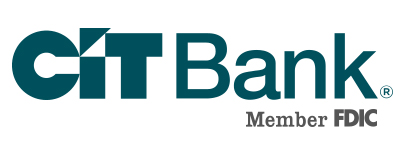Pros:
- No required balance or account fees
- High account interest rates
- Variety of terms lengths of CDs
- Personal loans available
Cons:
- Only savings account and CDs offered
- Must link accounts to another bank
- No ATM or debit card offered
- Opening balance for CDs is $500
Pros:
- Custodial accounts available
- Competitive interest rates on accounts
- Wide range of CDs offered
- No monthly fees
Cons:
- High opening required amounts
- Long transaction periods
- Hard to access custodial account money
- High early withdrawal fees for CDs
There is no required amount to open the account or to keep in the account. Marcus does not have monthly maintenance fees. You start earning interest on anything over $1 in the high yield savings account.
Marcus offers very competitive interest rates on their savings account and CD accounts. The interest rates are competitive with other online-only accounts. They are much higher than your typical bank rates.
Many different term lengths of CDs are available. Marcus offers nine different CD term lengths from six months to six years. The longer the term, the higher interest rate you earn. All the CD interest rates are very competitive with other online-only banks.
The personal loans offered through Marcus do not have fees. The loans are a fixed-rate interest loan. You can borrow up to $40,000. These loans can be to consolidate debt or for home improvement projects. The loans range in length from 36 to 72 months.
Marcus only offers deposit accounts of CDs and a high yield savings account. Checking accounts, money market accounts, and business accounts are not offered.
Since Marcus does not offer checking accounts, you cannot transfer money between Marcus checking and savings accounts. The easiest way to deposit money into your Marcus savings account is to link to an external bank account. You can also send a wire or check. Marcus does not charge a fee to send or receive a wire transfer, but the external bank might.
Marcus does not offer an ATM or debit card for the high yield savings account. To access your money, you must transfer the money back into your external bank account. You can also request a wire transfer.
To open any CD with Marcus, $500 is required. That amount opens the CD and is the amount needed to start earning interest. The interest rates vary depending on the term length of the CD. The longer the CD term, the higher the interest rates.
CIT Bank offers custodial accounts. You open the account in your child's name, but you control the account until the child is eighteen years old. There are no limits on how much you deposit into the account. There are tax benefits to having a custodial account.
The interest rates for CIT Bank accounts are very competitive. The high yield savings account rates are much higher than your typical bank. CIT Bank rates are even higher than other online-only accounts. CD rates are also competitive.
CIT Bank offers a variety of CDs including regular term CDs, no-penalty CD, jumbo CDs, and Ramp Up CDs. The no-penalty CD is an eleven-month CD. You earn interest on a CD with the options to withdraw the money at any time after the first seven days. The Ramp-Up CDs allow you to get a better rate once during the term of the CD. With the Ramp-Up Plus CD, you can get a better rate and make a deposit once during the term of the CD.
CIT Bank does not have a fee to open any of their banking accounts. There are no monthly maintenance fees for any of their banking accounts either.
The required amount to open a CD with CIT Bank is high. The minimum deposit for CDs is $1,000, including custodial accounts. Jumbo CDs require $100,000 to open. Other CDs require either an opening balance of $25,000 or $50,000. The minimum deposit to open a savings account is $100.
Transferred funds are not available until five to ten business days after the deposit is made. Deposits transferred from an external account are available after five days. Deposits mailed take ten days after the deposit is received.
Any money deposited into a custodial account is an irrevocable gift. You cannot withdraw or transfer the money from the account. It cannot be used for any purpose that doesn't directly affect the child listed on the account. Once the child reaches eighteen years of age, the money can be accessed.
CIT Banks fees for early CD withdrawals are higher than other banks. The fee for withdrawing money early from a CD with a term of more than three years is twelve months of interest. The fee for terms from one to three years is six months interest. Fees for CD terms up to one year are three months interest.


